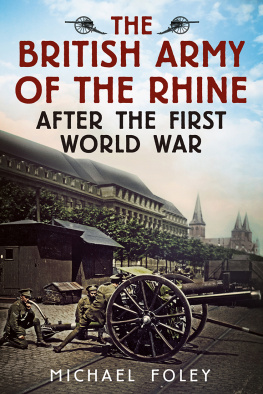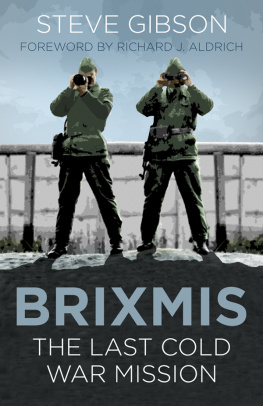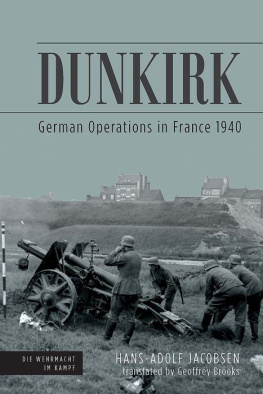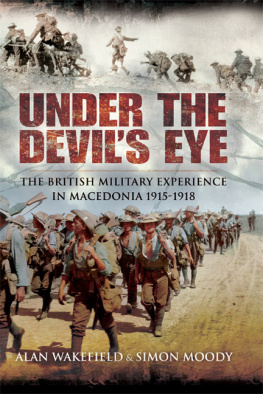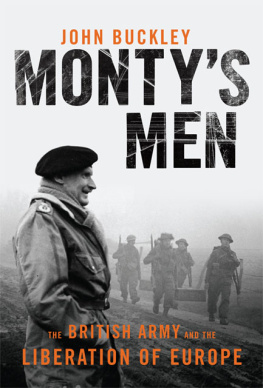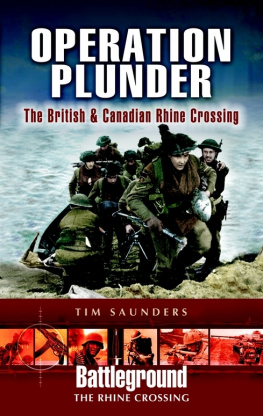Contents
Pagebreaks of the print version


To Dave Godfrey, not only family, but a friend as well. Sadly missed.
Fonthill Media Language Policy
Fonthill Media publishes in the international English language market. One language edition is published worldwide. As there are minor differences in spelling and presentation, especially with regard to American English and British English, a policy is necessary to define which form of English to use. The Fonthill Policy is to use the form of English native to the author. Michael Foley was born and educated in London and therefore British English has been adopted in this publication.
Fonthill Media Limited
Fonthill Media LLC
www.fonthillmedia.com
First published in the United Kingdom and the United States of America 2017
British Library Cataloguing in Publication Data:
A catalogue record for this book is available from the British Library
Copyright Michael Foley 2017
ISBN 978-1-78155-564-4
The right of Michael Foley to be identified as the author of this work has been asserted by him in accordance with the Copyright, Designs and Patents Act 1988.
All rights reserved. No part of this publication may be reproduced, stored in a retrieval system or transmitted in any form or by any means, electronic, mechanical, photocopying, recording or otherwise, without prior permission in writing from Fonthill Media Limited
Typeset in 10.5pt on 13pt Sabon
Printed and bound in England
Contents
1
Germany after the War
It is important to have some level of understanding of the situation in Germany that the men of the occupation forces found themselves having to deal with. They were not only going into a country that they had just beaten in the war (with all the resulting negative feelings that were going to be shown against them), but they also had to deal with the fact that the German population were going through a time of severe suffering and political upheaval in which the occupying forces often became involved.
Explaining all the intricate events and conflicts between the numerous opposing groups who operated in post-war Germany would take a book or two of its own. It has, in fact, been the subject of many such books. This book mainly concerns itself with the British occupation forces, so any explanation of the situation in the country is no more than a brief introduction to the situation.
As the end of the war approached, it was to have a major effect on Germany. It was not only the fact that they had lost the war that upset the German population. Many, but not all, of the German people had already been suffering for many years from a shortage of food. What was to come after the war was to be an even bigger shock for the population.
Unrest had begun in Germany before the war ended, especially among the German Navy. The major ships of the German Navy had been confined to port after the Battle of Jutland at the end of May 1916. This was the only major battleship-to-battleship conflict of the war; after this, the German navy avoided large scale naval battles. Due to this, many of the crews of the large German ships volunteered to go and fight in the submarines and smaller ships that were still involved in the war. Those who were left in port were on short rations and suffered a severe loss of morale.
There were protests by the sailors as early as August 1918; after one demonstration, the ringleaders were shot. At the end of October, there were plans for the fleet to leave harbour and take part in one last battle, despite the fact that the navy had been avoiding this since 1916. Although there had been a feeling that they should have been doing more before this time, many of the men now thought that such an action would lead to stiffer treatment by the Allies as the war was obviously already lost; consequently, they refused to sail. A number were arrested and imprisoned.
The result was a large-scale refusal to obey orders and, on 4 November, large numbers of the sailors mutinied. There were, according to Paul Schubert, some ships that remained loyal. One of these was the SMS Schlesian, which was manned by patriotic young cadets. The ship cleared for action and was watched by torpedo boats and auxiliary ships, all flying the red revolutionary flag as they sailed out of port.
Another ship, the Konig, also remained loyal and still flew the imperial flag. The officers refused appeals by the men to take it down and replace it with the red flag. Snipers opened fire on the ship and one of the officers, Lieutenant Zenker, was shot and killed.

